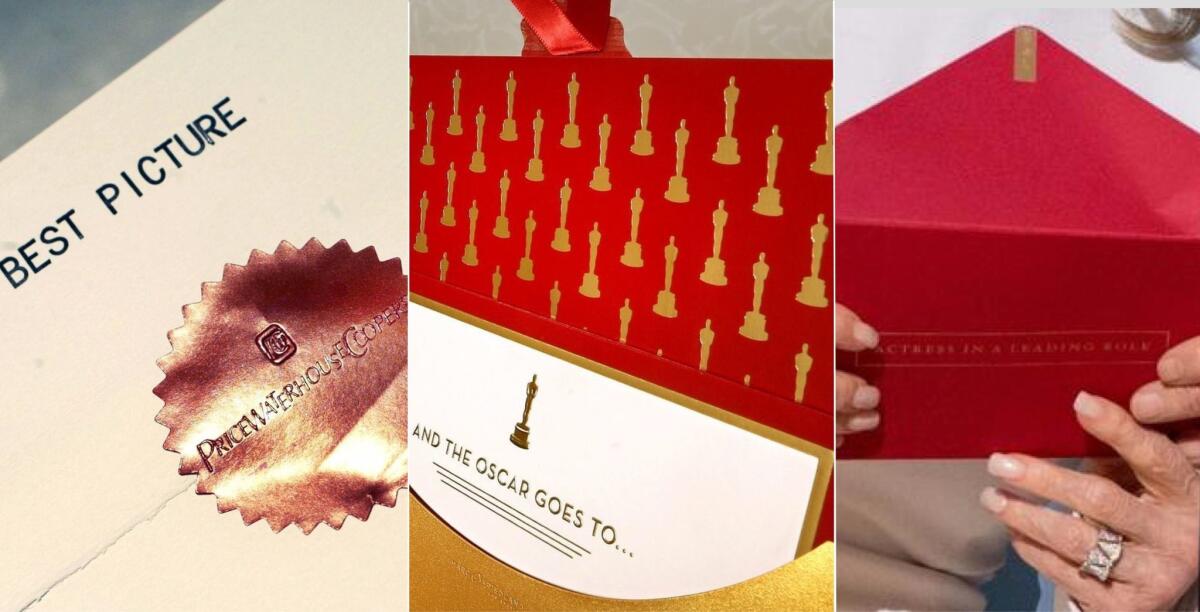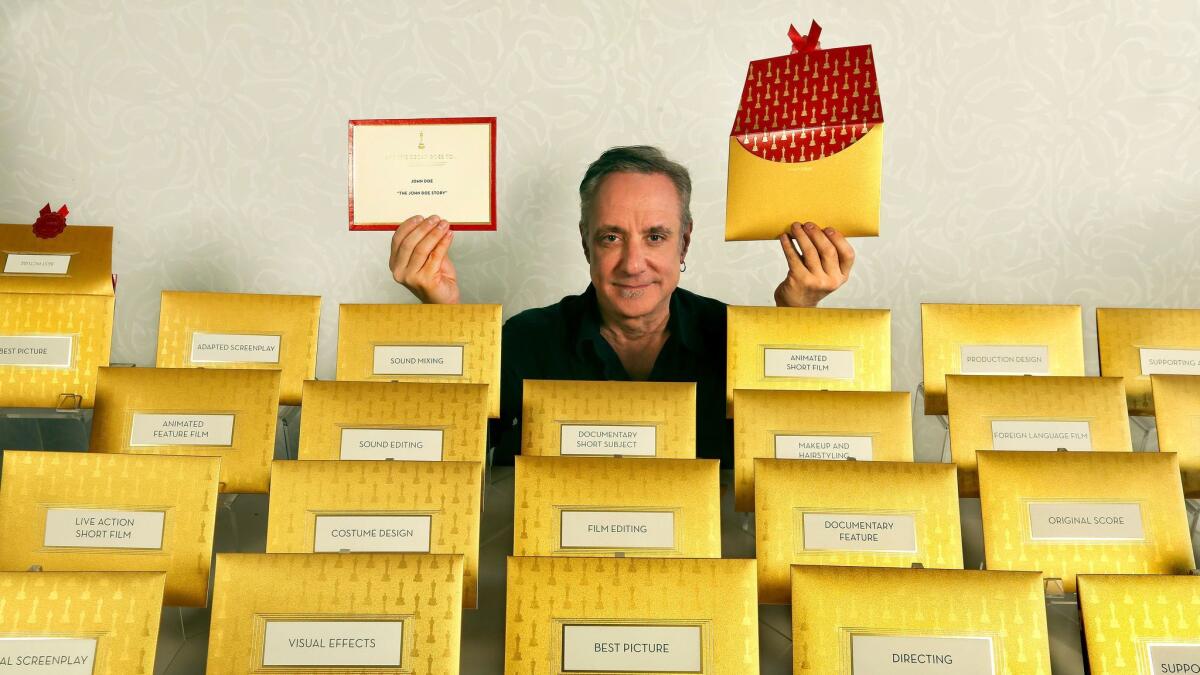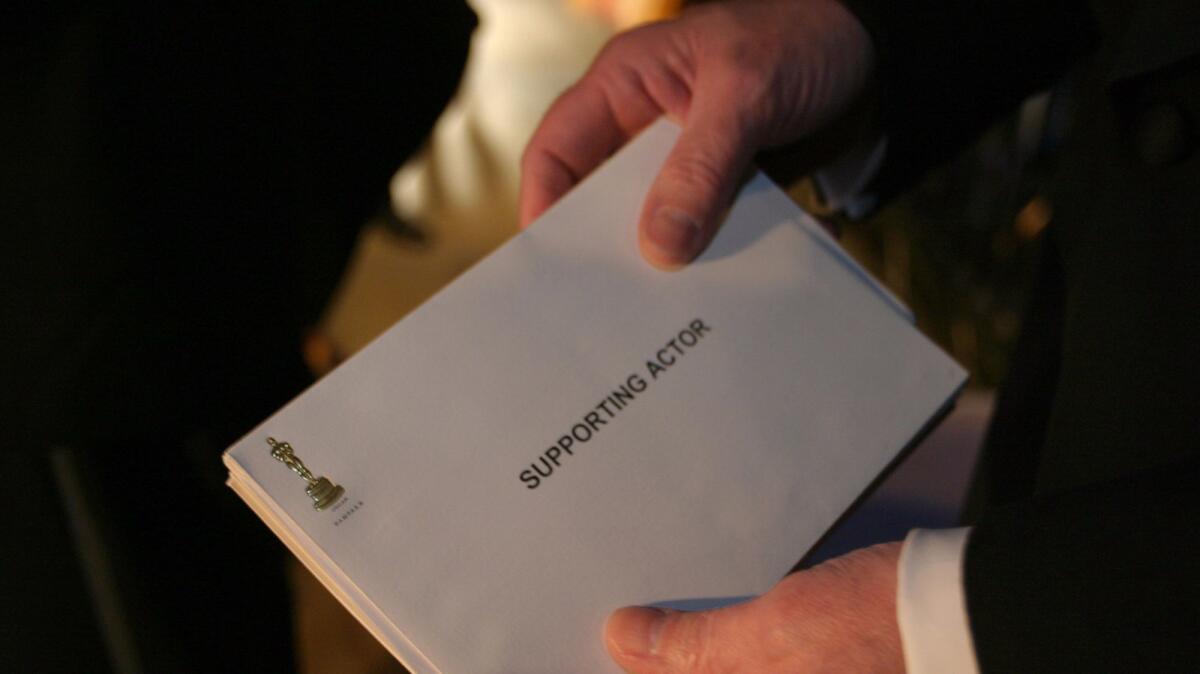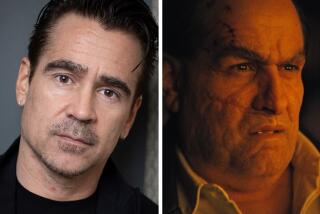Was Oscar’s best picture disaster simply the result of poor envelope design?

One of the most epic mix-ups in the history of the Academy Awards could have been the result of a faulty envelope design as much as bad backstage distribution.
Warren Beatty and Faye Dunaway were there to present the last award of the night, the Oscar for best picture. However, instead of the envelope for best picture, they were given a second envelope for lead actress, which was won by Emma Stone of “La La Land,” causing Dunaway to announce that “La La Land” had won best picture, instead of “Moonlight.”
A new envelope design — red with the category embossed on the front in gold lettering — could have been a factor.
This was the first year since 2011 that Marc Friedland Couture Communications of Los Angeles did not design and print the Oscar envelopes.
“It’s the worst nightmare, “ Friedland said of the snafu. “I can’t say our envelope would have prevented it, but we put measures in to make it as foolproof as possible, such as really legible, very big type.”

Friedland’s envelopes were gold, affixed with large ecru labels stating the categories in a proprietary typeface that provided contrast and legibility. This year’s new cards, with the lower contrast gold printing on red envelopes, could have been hard to read in the lighting backstage.
“We always were concerned about the fact the presenters could get them out of the envelope easily and that they were easily legible,” Friedland said. “I think it’s just a flaw in the design and human error that contributed to this.”
To enhance security, his firm printed three sets of cards and envelopes for the nominees in each of the 24 categories. The nominee cards and envelopes were shipped to accounting and consulting firm PricewaterhouseCoopers (now called PwC) where they were tabulated.
Brian Cullinan, chairman of PwC’s U.S. board and a member of the firm’s global board, and tax partner Martha Ruiz, who are veterans of the Oscar ceremony, are responsible for stuffing the winning nominee cards into two sets of Oscar envelopes and giving the correct card to presenters.
They are the only two people at the ceremony who know the winners before each award is presented. Cullinan and Ruiz have identical briefcases, each with a set of 24 winning envelopes. The redundancy allows presenters to enter from either side of the stage without disrupting the flow of the show.
“We have to make sure that when we reach into our briefcase that we hand the right one. At the end of the show, I have, roughly speaking, 12 envelopes in my briefcase,” Cullinan said last year. “It’s not rocket science, but with all the things going on, you do have to pay attention.”

In photos of the stage in the aftermath of the mix-up, it appears that Cullinan was carrying one envelope and Ruiz two, as they struggled to determine how the mistake happened.
In earlier years, cream-colored envelopes had the category written on the back in black, so presenters could see it quite clearly as they prepared to open in. Friedland approached the academy six years ago to create an envelope that was as historic and iconic as the Oscar statuette.
“While it’s horrible what happened,” Friedland said, “it’s a relief for us as we didn’t do the envelopes this year.”
More to Read
From the Oscars to the Emmys.
Get the Envelope newsletter for exclusive awards season coverage, behind-the-scenes stories from the Envelope podcast and columnist Glenn Whipp’s must-read analysis.
You may occasionally receive promotional content from the Los Angeles Times.






